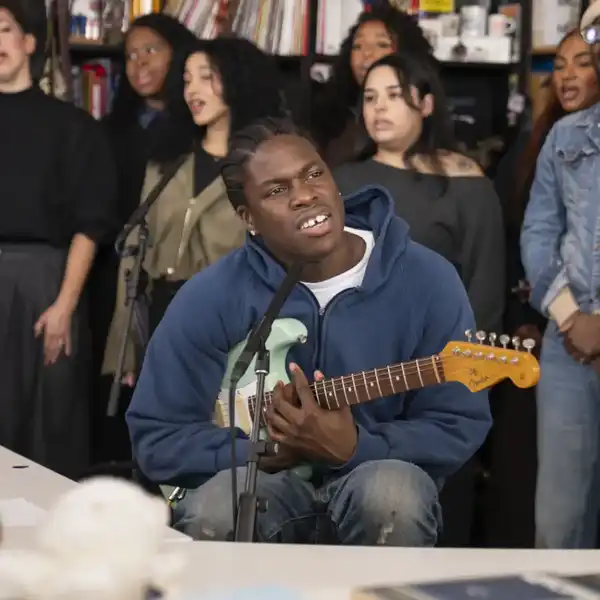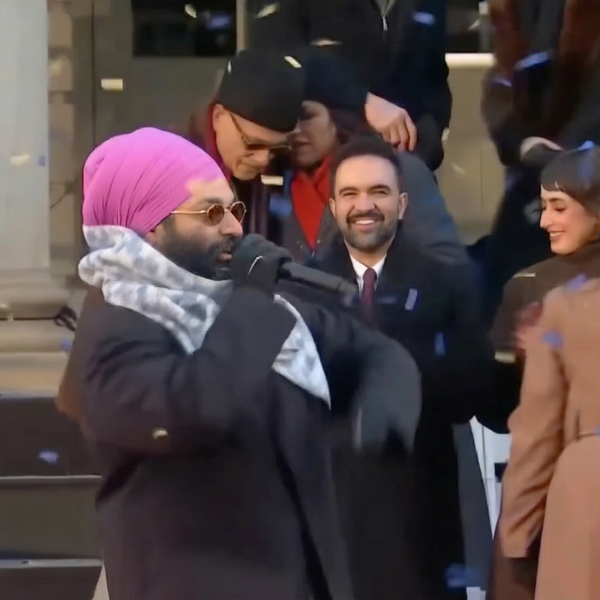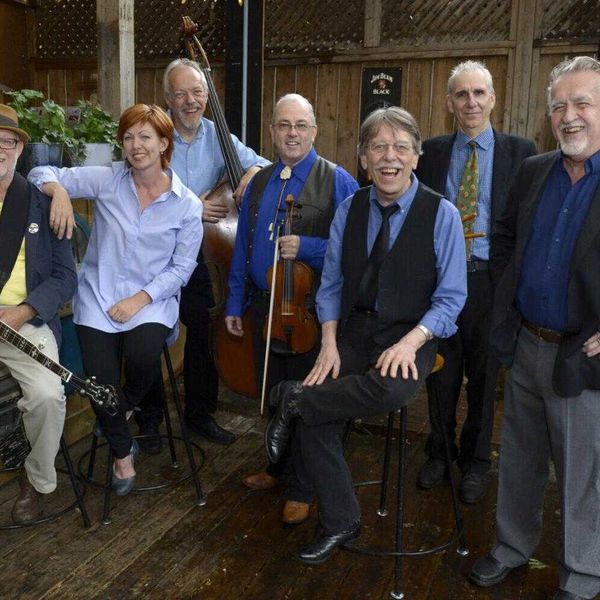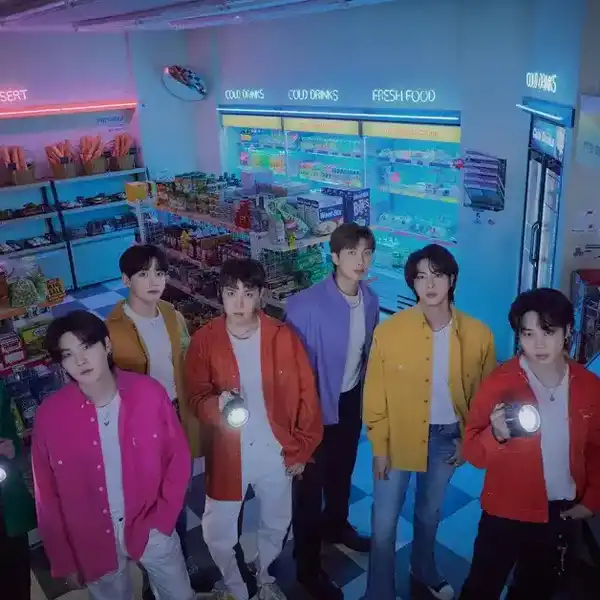A Road Map For Toronto's Live Music Industry Rebirth
With Toronto music venues threatened with extinction from the double whammy of the pandemic and insurance underwriters' refusal to renew liability insurance policies, the Canadian Live Music Association has commissioned a Nordicity report that offers eight recommendations to help elevate the live music industry out from its current state of crisis. Pictured: Assoc'n president Erin Benjamin.
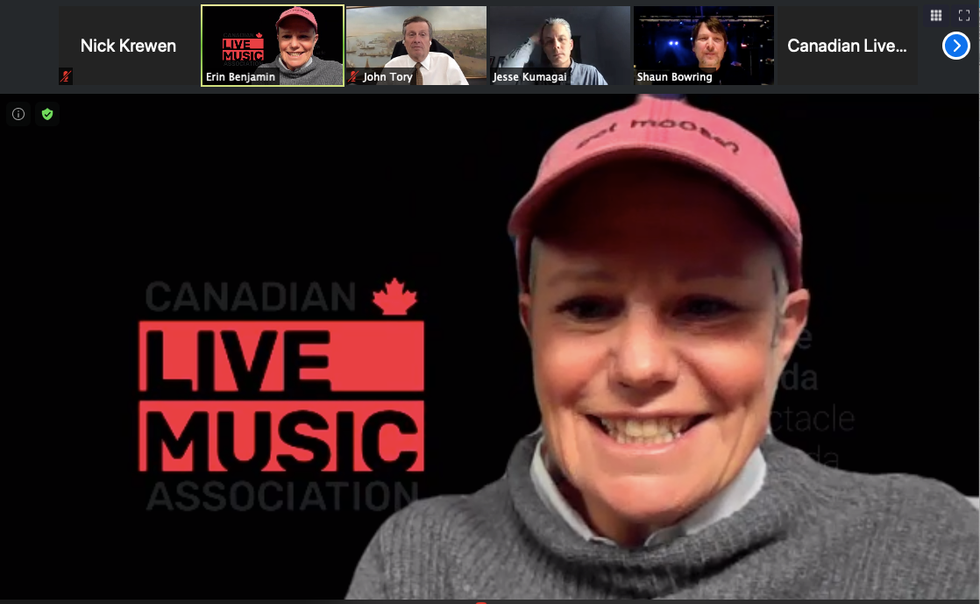
By Nick Krewen
A new study commissioned by the Canadian Live Music Association (CLMA) about the state of the live music industry in Toronto is seen by the city mayor as "a road map and a bit of an advocacy tool."
Speaking at a virtual press conference on October 8 that was hosted and moderated by CLMA president and CEO Erin Benjamin, Mayor John Tory said the Nordicity-authored Re:Venues, A Case and Path Forward for Toronto's Live Music Scene, "gives us an analysis of not just how difficult things are and how important things are, but a road map going forward that we can all sort of work on together to help make things better.”
Covid-19 has compounded problems for venues with closures or partial capacities while venue operators have been required to pay full rent, mortgage and insurance premiums without any relief.
So far, 11 downtown venues have closed and it is expected that others will follow.
Nordicity estimates that the 11 closures have cost Toronto $6.3M in GDP contribution and $2M in provincial and federal tax revenues. Nordicity adds that since March, Toronto has lost $99M in Gross Provincial Product (GPP) and $29M in lost provincial and federal taxes and put at risk 1480 full-time jobs.
From a tourism standpoint, the news is worse: between March 15 and August 31, Nordicity estimates that the lack of tourism revenues for music events in the city cost Ontario $369M in GPP and 4220 jobs.
“If there are no performances allowed because no venues can be opened, then the artists can’t do what they do, for their own wellbeing, but also do what they do to earn a living," Tory stated. "Of course, this has a cascading effect on the entire city.”
Tory, whose son Christopher works at Toronto-based concert promotion agency Live Nation as a revenue pricing manager, knows how vital music is to the city.
“It contributes gigantically to the reputation of our city as an innovative place that welcomes creative people and embraces them, and it says a lot about our spirit and economic innovation, too, so that’s why it’s important," Tory said at the press conference.
“I bet you could find a substantial portion of people who would say they’ve only really gotten through the pandemic because of music.”
Proactively, the Toronto City Council, with input from The Toronto Music Advisory Council (TMAC), has approved the expansion of the city's property tax subclass to include live venues back in June. As a result, retroactive to January 2020, landlords could apply for 50% property tax relief as long as they passed those savings onto their tenants. This is an annually renewable program.
As for the report, co-financed by the City of Toronto, the Downtown Yonge B.I.A., Ontario Creates, Tourism Toronto, Music Canada, Re:Sound, Little Portugal Dundas B.I.A. and the Lula Lounge, eight recommendations have been made:
#1: Reimagine programs to address immediate needs protecting against the loss of cultural infrastructure
Adjust existing emergency programs designed to help the payment of rent to better support live music venue by making it mandatory instead of optional. Currently, the program covers 50% of tenants’ monthly rent, with the tenant covering 25% and the landlord also covering 25%. A mandatory program would ensure that small businesses, and in particular music venues, receive these rent reduction benefits.
#2: Spearhead a group insurance program tailored to live music venues.
Even prior to Covid-19's arrival, the escalating cost of insurance premiums was a significant challenge for venues. Nowadays, many restaurants and venues in the hospitality factor are finding, despite making full payments of their premiums during this pandemic, that their liability insurance is not being renewed by underwriters.
"The dearth of competitive quotes prevents venues from evaluating multiple vendors and therefore inhibits market-based price discovery," the report states. "This issue has only become worse since the pandemic began. Several Toronto venues have recently reported that they face serious difficulties, if not impossibilities, of renewing their liability insurance, at any price, under the current circumstances. Insurance is a provincially regulated industry, any intervention would be at the provincial level – and thus open to venues from across the province."
The proposal: that CLMA administrates a group insurance program tailored to the unique needs of the live music venues, with the policy underwritten by the City of Toronto.
#3: Ensure permanent benefits of tax classification for venues to lessen the burden of escalating property taxes.
The city should also maintain a mechanism through which music venues can be protected from the pressures of increasing property taxes, which would include clearly defining music venues that is inclusive of lessees; ensuring that the property tax measure actually flows to venues and incentivizing landlords/property owners to cooperate with the administrative process required to certify a venue in their buildings.
#4: Identify funds that could be redirected to support cultural infrastructure
Specific funding to provide more long-term support to both physical venues and other cultural infrastructure, such as established events/festivals, capitalizing on existing funds that could be specifically promoted to venues, such as Investing in Canada Infrastructure Program (ICIP), Celebrate Ontario tourism event funding and the Department of Canadian Heritage Canada Cultural Spaces Fund (CCSF).
Nordicity also recommends funds to support music venues that would be re-allocated from other areas of funding that may currently not be needed, using the Liverpool, UK example of redirecting their “strategic initiatives” funding to a Music Industry Support Fund.
#5: Streamline permitting and amendment processes.
Identified as a short-term action, this would eliminate significant delays in securing approvals for required permits and licenses (e.g. occupancy code, building permit, liquor license) - delays that would prevent a "fatal" cash drain for venues waiting to open. Streamlining and digitizing the business license application process would allow the City to track and identify delays in the approval process, and to remediate parts of the process that are principal sources of delays for all types of permit applicants.
#6: Develop Canadian Live Music Fund to stimulate event activity and ensure the future viability and success of Canada’s live music sector and drive economic impact
To ensure long term recovery for venues and live music stakeholders, dedicated funding accessible beyond this “emergency” period is required and could be administered as a grant to live music venues for the completion of specific initiatives. (Hiring staff, event funding.) The CLMA could administer.
#7: Develop a Section 37 guide to help councillors prioritize gaps in the City’s music venue ecosystem
Section 37 permits the City of Toronto to authorize expansions on allowable height and/or density of development through zoning bylaws in exchange for community benefits, in the form of an in-kind contribution or cash-in-lieu. This section is a key planning tool for the City and ensures that with new developments, there are direct and relevant community benefits. Currently, the Section 37 provisions available for supporting music venues are limited to non-profit sector facility operators. To prioritize music venues in this provision, there should be a city-level survey to determine gaps in the venue ecosystem and determine which types of venues are most in-demand; a ward-level study culminating in a venue database and a list of vetted arts organizations that have the organizational capacity to engage with developers early in the development process and see a project through to completion, to help match developers with arts organizations and encourage a collaborative development process.
#8: Establish opportunities for business education among venue owners
As they develop new, sustainable business models, venues need to come together to share business skills, their experiments with monetizing new markets, and experiences responding to and engaging with the new communities that are growing around them.
Nordicity proposes a bimonthly workshop program for venue operators administered by CLMA in partnership with (and with support from) the City of Toronto and others (e.g., Destination Toronto, Ontario Creates) centring on the provision of business skills training. Talks and meet-and-greets intended to expose venue owners to successfully innovative business models in places beyond Toronto could also be implemented. The secondary purpose of these sessions would be to convene venues in one room to help identify pain points and disseminate strategies that venues are using to ensure the survival of their core purpose – presenting live music.
CLMA's Erin Benjamin told FYIMusicNews that she thinks the report "will be extremely effective."
"It’s another tool that will enable us to tell our story – and our story is pretty bleak right now. So the recommendations in the report are realistic, meaningful and totally achievable if we work together with government and industry to move them forward.”
Aside from Covid restrictions and the lack of business, the clear and present danger seems to be the refusal of insurance underwriters to renew venue liability insurance policies. While the group insurance recommendation might be a workable solution, Benjamin says progress in that direction is just getting started.
"Notionally, the concept of the CLMA delivering some sort of program to its members is really realistic. We’re going to need the insurance sector to come on board – and ultimately the challenge is underwriters. If we could find folks to underwrite policies, we can put a program together.
"But we’re not there yet. I think we’re on a good path in terms of speaking with the insurance industry and the live music sector. We need to find a solution and we need to find it fast. So if it means the CLMA can help broker a program on behalf of members and in partnership with the industries, then that’s what we have to do.
"Conversations have been with the IBAO and we’re in the process of setting up a meeting with some of their experts to take a hard look from their perspective about the situation. So we’re going in the right direction in terms of communication and dialogue. Hopefully, as the dialogue continues, those underwriters will appear."
Benjamin seems to have an ally in Ontario Finance Minister Rod Phillips, who told The Globe and Mail over the weekend that he expects insurance underwriters to "stop discriminatory pricing in commercial business policies as almost half of Canadian small businesses report their insurance costs are creating financial pressures during the global Covid-19 pandemic."
“Our government has been keeping a close watch during this pandemic to ensure insurance companies are meeting the needs of small businesses during this unprecedented time,” Phillips told The Globe and Mail. “My message to insurance companies has been clear: I expect you to treat your customers fairly.”
Despite these obstacles and realities, TMAC member Jesse Kumagai, President and CEO, Corporation of Roy Thomson Hall and Massey Hall, is feeling optimistic, although he admits the live music industry's work is cut out for them.
"It’s going to take a village to address the problem, but if we all work together, we’re going to get to the other side."



